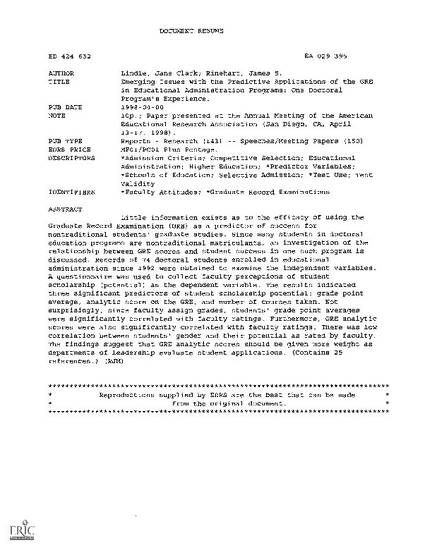
Little information exists as to the efficacy of using the Graduate Record Examination (GRE) as a predictor of success for nontraditional students' graduate studies. Since many students in doctoral education programs are nontraditional matriculants, an investigation of the relationship between GRE scores and student success in one such program is discussed. Records of 74 doctoral students enrolled in educational administration since 1992 were obtained to examine the independent variables. A questionnaire was used to collect faculty perceptions of student scholarship (potential) as the dependent variable. The results indicated three significant predictors of student scholarship potential: grade point average, analytic score on the GRE, and number of courses taken. Not surprisingly, since faculty assign grades, students' grade point averages were significantly correlated with faculty ratings. Furthermore, GRE analytic scores were also significantly correlated with faculty ratings. There was low correlation between students' gender and their potential as rated by faculty. The findings suggest that GRE analytic scores should be given more weight as departments of leadership evaluate student applications.
Available at: http://works.bepress.com/jane_lindle/18/
